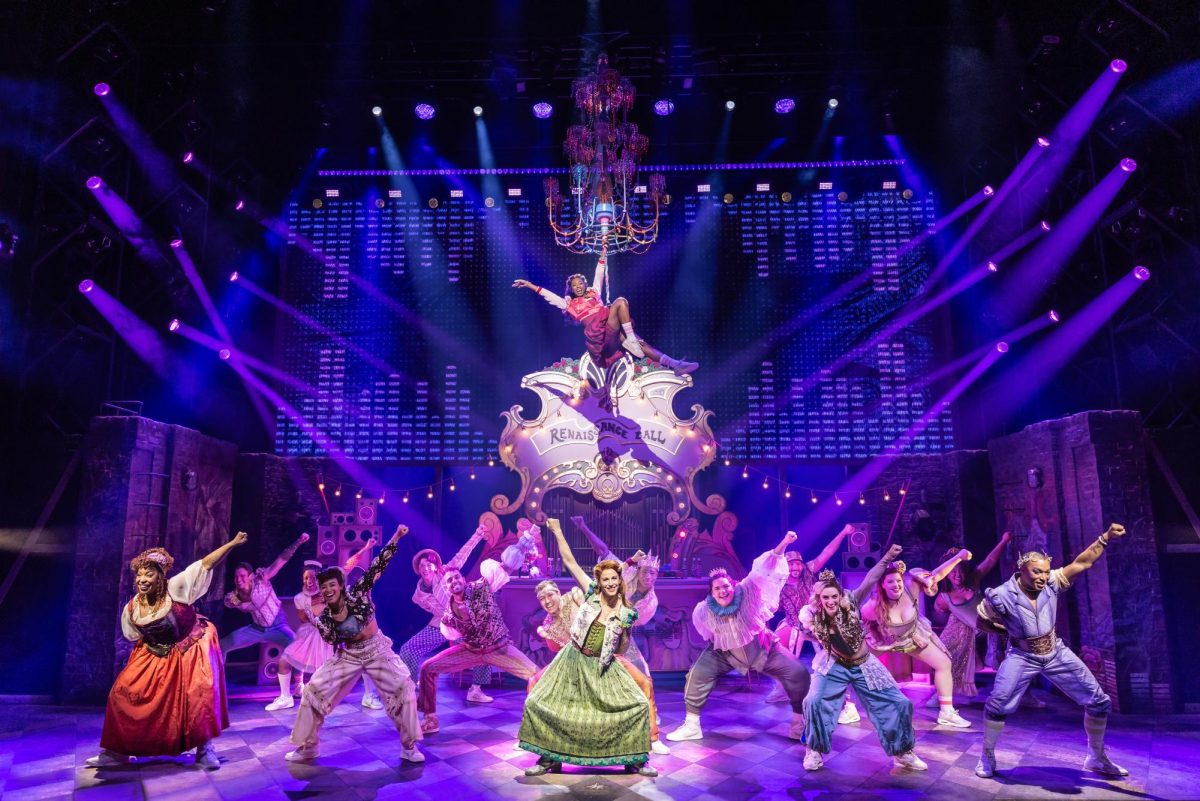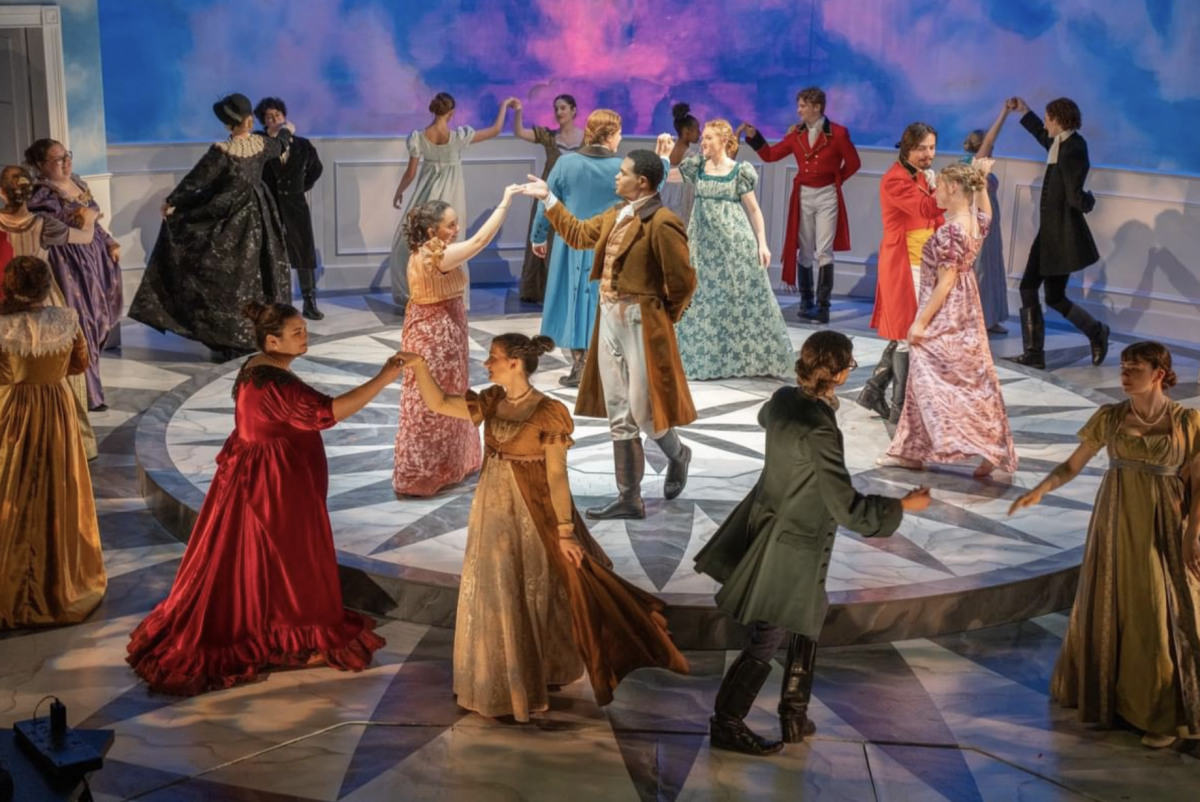Spike Lee is The Man. There is not a director working today capable of his brilliance. Forget race — black, white or polka-dot, he's still the best. Maybe the best ever, in fact. The most inventive, the most daring and the most affecting (for better or worse).
For some reason, critics are hesitant to admit this, probably because doing so would admit that Lee for all his hyperbole and his bottomless cauldron of anger, just may be, you know, right. Maybe America really is a Spike Lee Joint. Maybe his war of black against white, black against black and white against white really is going down on the streets around us, all to the tune of some Terrence Blanchard jazz riff.
No, that cannot be. Because if that is true — if we are really living in Lee's universe — we, as critics, are dangerously late for the revolution.
His new movie is "Inside Man" and, as usual for a movie directed by Lee, it is at times, frustrating, perplexing and ultimately brilliant. It joins Christopher Nolan's "Insomnia" and Lee's 2002 "25th Hour" as the one of the truly great movies to emerge from the 21st century.
In a way, though, "Inside Man" is even more impressive than "25th Hour," since it accomplishes greatness working within the strict confines of genre filmmaking. Indeed, this may be the best pure thriller in years — a movie that can legitimately be compared to "The Usual Suspects" and "The Fugitive."
Because it is a Spike Lee movie, it also works on another level as a study of power and class in America. There are also tangents of varying brilliance on the subjects of black-on-black violence, liberal guilt and, above all, the tricky minutia that makes up racial and gender politics.
The plot: On a quiet August morning, four people in masks lay siege to a midtown Manhattan bank. Early on the scene is Detective Keith Frazier (Denzel Washington, "Man on Fire"), a taxi squad hostage negotiator who, when he gets the call to come down to midtown, is being plagued by a corruption scandal. He is accused of extorting $140,000 dollars from a drug lord.
Is he guilty? Probably not, we think, though Lee is wise enough to keep this option available. He knows that we know that nobody is going to be what they seem in a movie like this, and he uses the corruption scandal to toy with our expectations. Washington handles the ambiguity well — on the one hand, he seems like a man with an easy kind of confidence, but a kind of harder brutality shows up in interrogation scenes interspersed throughout the narrative.
At the bank, Frazier and his partner (played with smoldering intensity by Chiwetel Ejiofor from "Dirty Pretty Things") find things to be amiss. The leader of the robbers, Dalton Russell (Clive Owen, "Closer") makes the usual demands — a jumbo jet, two passenger buses. But he seems curiously reticent to get out of the bank. Why is he stalling, Frazier wonders.
Along with Russell's gang of thieves, Frazier must deal with a collection of city higher-ups who seem to have a strange interest in what happens in the bank. He has a quiet power struggle with Captain Darius, the trigger-happy, semi-competent SWAT commander played to dim perfection by Willem Dafoe ("xXx: State of the Union"). More disturbing, however, is the continual presence of Madeline White (Jodie Foster, "Flightplan"), a shadowy power broker working to ensure the situation is resolved smoothly.
In order to protect the film's surprises, I won't talk anymore about her role in these proceedings except to say that Foster, who looks bright-eyed and angular, turns in one of her best performances in recent years in a role that is little more than a Macguffin.
Lee's trademark staccato visual style is somewhat restrained here, though he makes a few exceptions with a few of his famous "moving zoom" shots, some handheld camera work and a bound-to-be-controversial shot of a cop being bribed in front of a Sept. 11 mural.
The most intriguing moments occur as Frazier tries to manage the political chaos outside the bank. He has to handle varying degrees of offhand racism and Lee quietly observes how power influences how he responds — he chews out a beat cop but gives Darius a free pass after both men use racial slurs.
And then there is the tricky nature of taking orders from a woman like Madeline White. Foster doesn't take the easy road and make White a tough-talking spitfire. Madeline isn't one of the boys — she is a quiet, thoughtful and defiantly feminine woman who happens to hold all the cards (or so she thinks), further enhancing Frazier's wariness over the situation.
Now, the ending, which is bound to get some people fired up. Not the "real" ending, about how the end of the robbery comes about, which is a glorious celebration of genre machinations. No, I am talking about the emotional ending, which is on display in the very last scene. Caper movies are supposed to end on a note of redemption, and, if I am not mistaken, Lee flaunts this cliché. The final scene (without giving too much away) ends with a man we think is a hero getting exactly what he wants.
But look at the particulars behind this object. Are you telling me that if he were to keep it, he wouldn't be selling a tiny bit of himself? Isn't that what we are told in a monologue by a different character only seconds earlier?
Which one of these men is the true hero of "Inside Man"? What is the moral, exactly: that there are no heroes? That we all can be bought? Or is it that we're all fighting to do good, only some of us lose our way?
The ambiguity of the movie makes it so that you could argue it both ways: this could be a movie with no heroes, but then again, it also could be a movie with no villains, since even the most repellent character has dedicated the majority of his life to helping humanity.
I would feel a little bit more uneasy about these questions, if I wasn't confident that Lee wanted me to have these questions. He wants us to question the ultimate message Hollywood thrillers espouse. That's the thing about Spike: he's always one step ahead of you.
Rating: 5 out of 5







